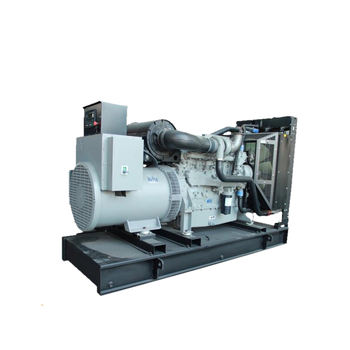Introduction: The Importance of Safe and Efficient Fuel Storage
When it comes to maintaining a reliable power supply, having an efficient and safe generator set fuel storage solution is crucial. After all, what good is a generator if it can't access the fuel it needs to operate? As it turns out, striking the right balance between safety and efficiency can be quite the challenge. But don't worry – in this article, we'll explore the best practices for optimizing your fuel storage system, so you'll never have to compromise between these two essential factors.
Choosing the Right Fuel Storage Tank
The first step in creating a safe and efficient fuel storage solution is selecting the right tank for your generator set. Depending on your specific needs, you might opt for a diesel tank or a day tank. Diesel tanks are large, stationary containers designed to store fuel for extended periods. They're ideal for facilities with high fuel consumption rates or limited space for multiple tanks. Day tanks, on the other hand, are smaller and more portable. They're perfect for supplying fuel to generators in remote locations or providing backup power during maintenance or emergencies. When choosing a fuel storage tank, consider factors like capacity, material, and compatibility with your generator set.
Material Matters: Stainless Steel vs. Polyethylene
Two popular materials for fuel storage tanks are stainless steel and polyethylene. Stainless steel tanks are durable, corrosion-resistant, and capable of storing large quantities of fuel. However, they can be expensive and challenging to install. Polyethylene tanks, on the other hand, are lightweight, cost-effective, and resistant to chemicals and UV rays. They're also easy to transport and install, making them an excellent choice for temporary or mobile generator sets. Ultimately, the best material for your fuel storage tank depends on your budget, fuel requirements, and site-specific conditions.
Maintaining Fuel Quality and Safety
Ensuring your generator set has access to clean, high-quality fuel is vital for its performance and longevity. Contaminated fuel can cause engine damage, reduce efficiency, and even pose safety risks. To maintain fuel quality, consider implementing a fuel polishing system, which filters and removes impurities from your fuel storage tank. Additionally, regularly inspect your tank for signs of corrosion, leaks, or damage, and address any issues promptly. When it comes to fuel safety, adhering to local regulations and industry best practices is essential. This may include installing fire suppression systems, grounding your tank, and providing adequate ventilation.
Optimizing Fuel Efficiency
Once you've ensured your fuel storage solution is safe and reliable, it's time to focus on efficiency. One way to optimize fuel efficiency is by implementing a fuel management system. This technology can monitor fuel levels, consumption rates, and generator performance, helping you identify opportunities for improvement. For example, you might discover that scheduling regular generator maintenance or adjusting your load management strategy can significantly reduce fuel consumption. Another approach to boosting efficiency is investing in energy-saving technologies, such as variable speed drives or hybrid power systems.
Practical Application: 5 Actionable Tips for Safe and Efficient Fuel Storage
Conclusion: Ensuring a Reliable Power Supply
In conclusion, a safe and efficient generator set fuel storage solution is essential for maintaining a reliable power supply. By choosing the right fuel storage tank, prioritizing fuel quality and safety, and optimizing fuel efficiency, you can ensure your generator set performs at its best when you need it most. So, take the time to assess your current fuel storage system and make any necessary improvements – your generator (and your wallet) will thank you!





